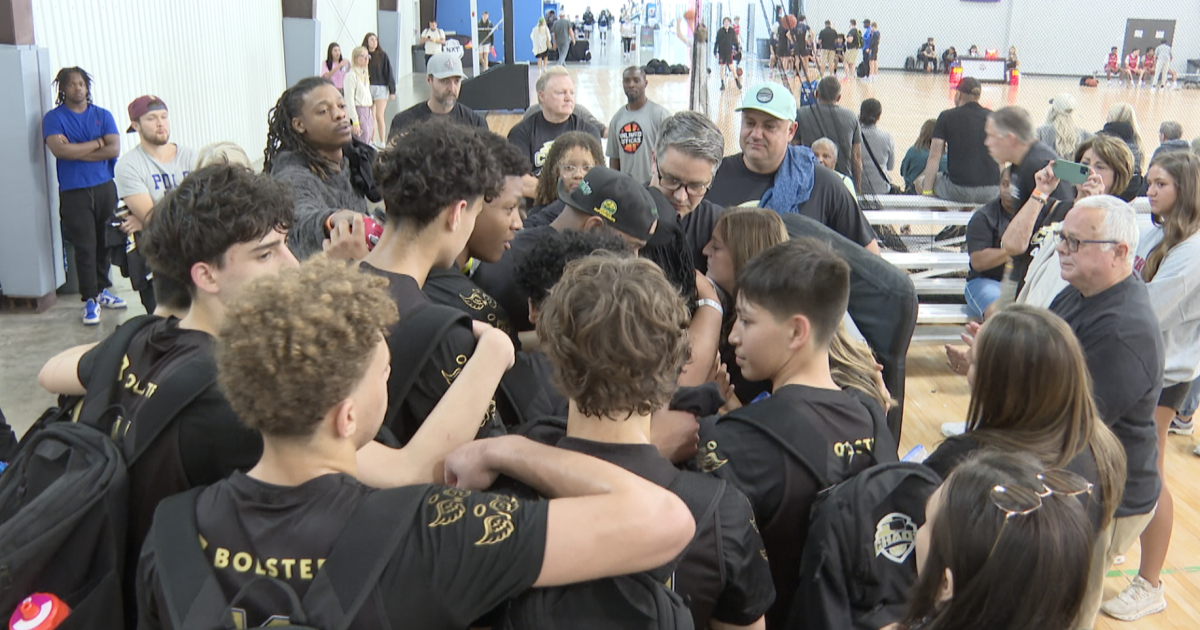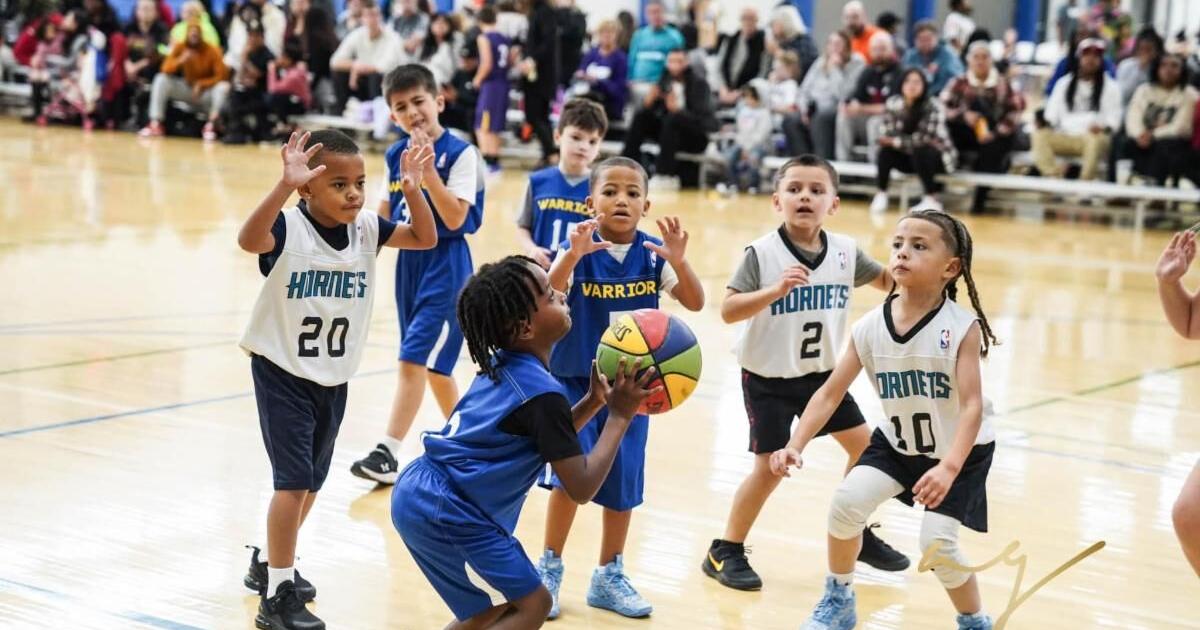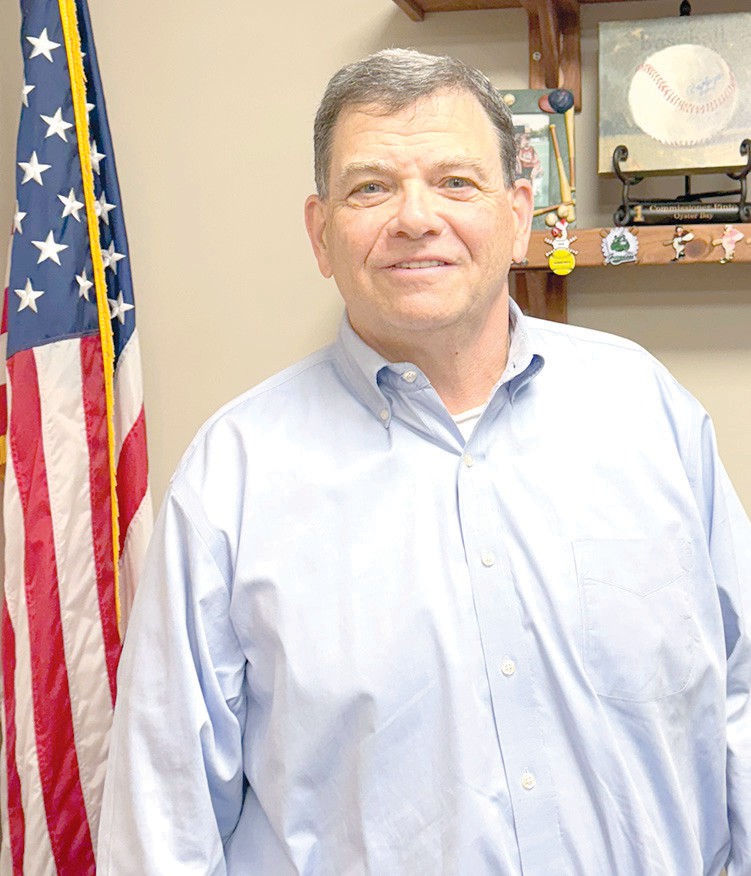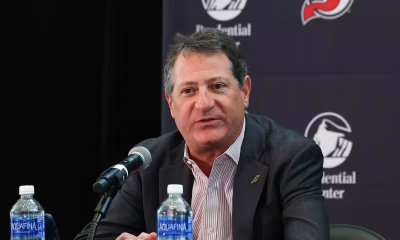Tell us about yourself and your family.
Rec Sports
Basketball team honors crash victims

TULSA, Okla. — A car crash on May 4 took the lives of eight people, including four members of a traveling youth basketball team based in Green Country.
On May 10, almost a week after this tragedy, the rest of the Oklahoma Chaos honored them by playing in a tournament.
2 News Oklahoma listened to the Chaos about remembering them and coming together to overcome this significant loss, not just as a team, but as a family.
The team had four big shoes to fill on Saturday: those of players Kyrin “Ace” Schumpert, 14, and Donald “DJ” Laster, 14, and those of coach Jaimon Gilstrap, 33, and former coach Wayne Walls, 41.

KJRH
The four other people who died were in the other car.
Walls’ 15-year-old son was the sole survivor of the crash in Kansas. He is also a player on the team.
“It’s been a difficult week,” Timothy Bezenah, who stood in for Gilstrap and Walls, told us.

KJRH
“Ace and DJ never shy away from a fight,” he also said. “They would’ve been out there four and oh. And that’s why we want to go this weekend, for them.”
Point guard Cameron Treadway told us, “It’s been a lot ’cause our coaches … they meant a lot to us, you know, they really believed in all of us. … And then our teammates, obviously, [we] loved them very much. And they really cared about us too. They believed in us also.”

KJRH
“This is why you play sports,” Bezenah emphasized. “It’s to be connected to other people. You’re not walking through life on your own.”
He told 2 News Ace, DJ, and Gilstrap are especially why Treadway and Rylan Watson returned to play for the Chaos this season.
“The love for the game is just crazy,” Treadway said about his passion for basketball. “It’s like a way out of like problems, trouble, and all that.”
Watson told us he loves the competitiveness of the game. He said what’s been on his mind the past week is to just “keep on going” and “keep on working.”

KJRH
“Ever since I met them, they’ve been family,” said Watson. “So, it really hurt. … So, you just gotta take it all out on whatever sport you’re playing.”
When asked if he thinks their family is stronger now, he replied, “Yeah, absolutely. Stronger than what it was at the start of the season. It just lit a fire for us to go. It gave us a ‘why’ to play the game. That’s really what it did.”
Watson said not to take family for granted.
“I talked to [them] five minutes before they all passed,” he recalled. “So really, his last words was, ‘I love you and be safe and make it, lemme know when you make it home.’ Soon as I went home, I called him.”
“So, just spend time with your loved ones,” he added. “Don’t take it for granted. And then, just enjoy life while it lasts.”

KJRH
The Chaos wound up winning their first game at the tournament. Afterward, they and their supporters huddled up, listened to Bezenah and one of the parents speak, all hugged each other, and then the team put their hands in the middle.
On the count of three they chanted “Chaos,” and on the count of six they yelled “Family.”
Stay in touch with us anytime, anywhere —
Rec Sports
Alpine skater enjoying SDSU hockey


The ice hockey season is in full swing, and that includes San Diego State University’s men’s ice hockey team.
Alpine resident Tim Mehrer is a member of the 2025-26 Aztecs squad and he’s having a blast.
“It’s fun to play at this high level,” the El Capitan High School alumnus said. “There are a lot of good guys on the team and I enjoy the team camaraderie.”
Mehrer attended the Lakeside school all four years before making the cross-country trek New Hampshire to play Junior hockey for the Northern Cyclones for two years. The Cyclones compete in the United States Premier Hockey League (USPHL) Elite, which serves as a launching pad for college and professional leagues.
Mehrer played in 43 games his first season with the team in 2022-23 with one goal and one assist and six penalty minutes. He logged time in five playoff games with one assist. He appeared in 38 games in his second season with the Cyclones, recording nine goals and 11 assists for 20 points with four penalty minutes. He skated in six playoff games with one goal.
He took a year off from the grueling grind of Junior hockey to suit up this season for SDSU. In three games with the Aztecs, he’s been productive with three goals, three assists and six penalty minutes.
Mehrer grew up playing the standard American youth sports — baseball, soccer and lacrosse. He then transitioned to ice hockey with the San Diego Saints youth club at the 10U to 18U levels. He learned to skate at the Kroc Center.
He said ice hockey caught his attention when he noticed his father watching “Miracle,” a film about the 1980 United States gold-medalist men’s Olympic team.
“Hockey was kind of unique, no one else in San Diego was playing it,” he said.
He got his feet wet in higher levels of local hockey by playing in five games for the San Diego United Hawks, a high school team that competes in the Anaheim Ducks High School Hockey League. He appeared in 30 games with the Saints 18U-AA team in 2021-22, excelling with 17 goals and 12 assists for 29 points with 41 penalty minutes.
He finished second in scoring on that Saints team.
While he was attending El Capitan, he played three seasons of tennis for the Vaqueros, winning a San Diego Section Division III championship in 2021 as a junior and a league championship as a senior.
The 2021 season was unique Alpine skater enjoying SDSU hockey as the section combined boys and girls into a coed format in response to the coronavirus pandemic that forced teams to field shortened seasons. The coed format featured boys singles, girls singles, boys doubles, girls doubles and mixed doubles.
It was the first CIF championship in the sport for the Lakeside school.
Mehrer played doubles.
“It was an enjoyable sport,” he said. “My best friend was my doubles partner. He got me into it. It was something different from hockey.”
SDSU competes at the Division I level in the American Collegiate Hockey League, a club-based league separate from NCAA varsity teams.
This is the Aztecs third year since moving up to the ACHA’s highest level. The team is still experiencing growing pains with a 2-11-1 record through games as a member of the Western Collegiate Hockey League, one of the premier ACHA men’s playing circuits.
Mehrer ranks fifth in scoring on the team but sits just two points behind team scoring leader Braden Mayer, an Eastlake High School alumnus. Jake Abenojar, Cameron Ferraz and Ryan Elleraas are all one point ahead of Mehrer, who is tied with teammates Mason Brown and Noah Robinson.
Elleraas also played for the Cyclones.
The Alpine skater recorded two goals and two assists in a 13-1 non-conference win over Cal-State Long Beach.
Rec Sports
Inside the $21.8M plan for a safer, modern Irondequoit fire station
Dec. 26, 2025, 5:12 p.m. ET
The St. Paul Boulevard Fire Department plans to build a new firehouse to meet modern safety and staffing needs.
Since the staff has grown beyond the original design, the current firehouse no longer fits the needs of the staff or the proper health and safety standards — according to NFPA 1500 safety standards and cancer prevention standards. It was built in 1990.
Rec Sports
20 Under 40: Eric C. Peterson

Eric Clark Peterson | Heritage Tractor regional sales manager

For Eric C. Peterson, a Heritage Tractor regional sales manager, it’s important for people to put faith in themselves. “If we work hard, stay positive, and take an interest in helping others, we can improve our life and many others around us too.”
“Always bet on yourself, because you control the odds.”
Article continues below this ad
I live in Winchester with my wife, Brittany, and our four amazing children, Alli, Maci, Ryder and Brynli. I spend most of my free time attending West Central Cougar sporting events, coaching youth sports, volunteering for our school board and boosters, and doing anything hunting- or fishing-related.
How would someone meeting you for the first time would describe you? Why?
Approachable, I love having conversations with anyone willing to have one.
Tell us about someone or something that has influenced you, and why.
Article continues below this ad
I have two people that have been the biggest influences in my life. My wife, Brittany, has been by my side and is the rock to our family. She has always supported my ideas, challenged me, and encouraged me to be my best even when I didn’t think I could achieve some big goals. My favorite thing to say is “the safest bet to make is to bet on yourself.” She has allowed that for me.
My Dad. He is the one that I have looked up to my entire life, from our daily phone calls, talking sales strategies, or hunting and fishing. Those are moments that I will always cherish. He is the reason that I stepped into the sales career and it’s pretty awesome to have a mentor I can call Dad.
What changes would you like to see in your community in the next 10 years, and how can they be brought to fruition?
Article continues below this ad
I would love to see our community grow, more businesses and more housing opportunities for families. As far as how we are going to get there, my best guess is we have to just keep our head down and keep working, we must stick together.
What do you consider the biggest challenge about your community?
Also growth, with being such a small community, business opportunities and housing are hard to come by, we only have so much room.
Which part of your personality do you think comes most from your family, and which feels distinctly your own?
Article continues below this ad
My ability to talk to anyone, and that would be thanks to my mom. She isn’t afraid to start up a conversation, include others and always have a good time. That is true for me, too.
My joking personality, I own that one. I love to pester my kids, nieces and nephews, friends, and coworkers. Sometimes — well, most of the times — I am the biggest kid in the room.
What is something you’re passionate about?
Sports, especially youth sports. It is such a great way to give back to the community but also I have the opportunity to help mold young athletes and help shape them into young adults.
Article continues below this ad
What was the moment you realized, “This is the kind of work I’m meant to be doing”?
My first sales call, I was hooked. I knew at that point there was no going back. Being out of shape, having bad knees and a family to raise, this was as close to competitive sports as I was going to get. There is competition, rivals, team goals, and if you practice hard enough, you can succeed.
How do you stay motivated on the days when the work feels heavy or thankless?
My family and friends are my biggest motivators. They are my everything. Sometimes one single conversation or phone call from my favorite people can help reset my mind and get me back on track.
Article continues below this ad
What’s a small, practical thing everyone could do that you think would improve daily life for people here?
Just do your best and stay positive. It is a lot easier to lay down and take the negative path in life but if we work hard, stay positive, and take an interest in helping others we can improve our life and many others around us too.
If you could give one honest, unfiltered piece of advice to younger people in your community, what would it be and why?
Article continues below this ad
Always bet on yourself, because you control the odds. You control the decisions, choices, and direction you can go. It may take longer than others, but this is your game so just play the game and always place the bet on you.
Rec Sports
Local park district’s Junior NBA winter basketball leagues to start in January | Positive Local News


ROCKFORD, Ill. — A local park district announced that a youth sports league will be starting soon.
The Rockford Park District Jr. NBA leagues are co-ed winter basketball leagues for boys and girls from kindergarten through 5th grade.
Players go to one 60-minute practice on Monday nights between 5 p.m. and 8 p.m. and one 40-minute game on Friday nights between 5 p.m. and 7:30 p.m. Playing time is encouraged for all participants, the park district says.
There are three age groups. Kindergarteners and first graders play at the “Rookies” level, second and third graders at the “Pros” level, and fourth and fifth graders at the “All-Stars” level, according to the Park District’s website.
There is also a “Little Hoopers” league for boys and girls from ages 3 to 4. That league starts on Jan. 31, 2026, at the YMCA SwedishAmerican Riverfront, located at 200 Y Blvd. It runs until March 7.
The Rockford Park District Jr. NBA leagues start Jan. 19, 2026, at the UW Health Sports Factory, located at 305 S. Madison St. It runs until March 6.
To sign up for either league, visit the park district’s website.
Rec Sports
Public official and Little League coach


Joe Pinto, the Massapequa Herald Post’s Person of the Year Carolyn James /Herald
For 40 years, he has stood at the edge of the diamond, teaching generations of boys and girls not only how to field a grounder or swing through the ball, but how to believe in themselves. Parents trusted him, players looked up to him and the community came to rely on his steady presence in their youth sports programs. For Joe Pinto, coaching was never a hobby, it was a lifelong devotion to the sport he loved. But it was also something deeper.
Pinto’s father died when he was 5. His mother believed it was important for him to play ball and join the Scouts, where he could build relationships with male coaches and Scout leaders. He thought those experiences inspired his future as a baseball coach. What he didn’t realize then was that the path had also been nudged forward by his father — in the form of a worn note tucked inside a manila envelope.
“I was about 27 years old and was going through some of my father’s papers and there was a manila envelope that I picked up and opened,” recalled Pinto. “Inside was a note in my father’s writing that said: ‘Joe, be a manager.’ It was like my father was watching and listening to me.”

Joe Pinto, his wife Janis and sons, Joseph, Matthew and Vincent (center), who died in 2021. Courtesy Joe Pinto
Pinto, a Massapequa Park resident and commissioner of Parks and Recreation in the Town of Oyster Bay, grew up in Brooklyn. He came of age in the post-Dodgers era, when most people — including his family — became Mets fans.
“But secretly I rooted for the Yankees,” he said, laughing, later learning his father had been a Yankees fan, too. “I couldn’t tell anybody; you know, that’s like a mortal sin.”
Pinto’s first coaching assignments came in Brooklyn while he was attending Pace College in Pleasantville.
“I was 18 and it was freshman year,” said Pinto, recalling how parents helped cover the cost of his travel from Pleasantville to Brooklyn to manage the teams. He later coached in Pleasantville, cutting out the long trips.
He earned an accounting degree and joined Deloitte, Haskins & Sells, choosing to work out of the Syosset office rather than in New York City. The commute introduced him to Long Island, and he eventually bought a condo in Hauppauge.
Pinto married Janis, and the couple had three sons: Joseph, Mathew and Vincent, who died in 2021.
The family purchased a home in Massapequa Park and Pinto brought with him his passion for baseball and coaching. By then, he had taken a job with The LiRo Group, a construction engineering firm.
His devotion to youth sports eventually led him into politics. In 1995, while volunteering with the Massapequa International Little League, a fire tore through the Massapequa Park Community Center, destroying $35,000 worth of league equipment and uniforms. At the time, Pinto was serving on the Planning Commission. When efforts to recoup the loss stalled, a frustrated Pinto ran for village trustee — and won. He became deputy mayor in 1999.
“He worked tirelessly as a member of the Village Board and was an important part of many of the changes that have made Massapequa Park a great place to live and raise a family,” said Mayor Danny Pearl. “We are fortunate to have him as part of the Village, in Little League and in the Town of Oyster Bay as Parks Commissioner.”
During his time on the Village Board, Pinto helped revitalize village parks and recreation areas, work noticed by Joseph Saladino, who later became Oyster Bay town supervisor. Pinto eventually ran for Oyster Bay Town Council, where he used his CPA background to help manage budgets for, among other things, town engineering projects.
When the position of commissioner of Parks and Recreation opened, the Town Board quickly appointed him.
“On the board of our Little League, preparing fields, understanding all the complicated intricacies between the needs of our community and the role of our Town Parks Department, he is an expert in that and is the perfect person to head up our parks department and to also assist us in all of the financial matters of this town,” said Saladino in nominating Pinto.
I have had the pleasure of knowing Joe for close to two decades,” said Craig Garland of the Massapequa Coast Little League. “Joe is one of the most respected baseball people on Long Island. His passion for youth baseball and keeping kids in Little League is is second to none and when it comes to youth baseball here in Massapequa, Joe volunteers countless hours for the benefit of our community. That enriches the lives of children and families in Little League.
Garland added that his work as Parks Commissioner also helps enhance the quality and variety of youth programs in Oyster Bay.
Pinto has spent more than four decades coaching baseball. Looking back he says he sometimes thinks of some young, snarky kids who give him trouble when he tells them to run or work out. He says that 40 years from now, he hopes those same kids are together somewhere in Massapequa Park, looking back on those days and laughing.
Rec Sports
New community center underway in Elmhurst, and more

Elmhurst starts work on new community center
Elmhurst Park District officials were on hand to mark the start of demolition of the community center, which is being torn down to make space for the new Joanne B. Wagner Community Center at 615 N. West Ave., which will have 127,250 square feet and cost nearly $85 million to construct.
Those at the ceremony included Park Board President Kevin Graf, Vice President Claire Kubiesa, Executive Director Jim Rogers and Commissioners Vince Spaeth, Meghan Scarsella, Carolyn Ubriaco and Susan Smentek.
The new center, which will be built by McHugh Construction, will add more recreation and early childhood programming, thanks to being about four times larger than the previous center.
It will feature a full-size gymnasium, indoor artificial turf field, three-lane elevated walking track, expanded gymnastics and dance studios, an indoor play area, early childhood and preschool classrooms with a separate entrance, administrative offices and multipurpose community rooms. It is expected to open in fall 2027.

Leyden Youth Basketball League starts soon
Children in first to eighth grade can participate in the Leyden Youth Basketball League from Jan. 10 to March 27 with the Park District of Franklin Park.
Players can work on their ball skills, exercise teamwork via games and once-weekly 60-minute practices and build confidence. Teams are formed from Franklin Park and nearby communities.
The fee includes a T-shirt uniform. Resident passholders in first and second grade pay $105 and others pay $115. Older grades pay $130 for resident passholders and $140 for others.
A late fee of $15 will be charged for those who register after Jan. 3. Sign up by calling 847-455-2852 or online at fpparks.org.
Learn about winter birds at forest preserve program
The Forest Preserve District of Will County presents Backyard Winter Birds from 8:30 to 10 a.m. Jan. 11 at Hidden Oaks Nature Center in Bolingbrook.
Participants can learn which birds migrate through Will County and which stay during the winter, as well as how to attract them to a yard.
The program includes a short guided hike and indoor bird viewing with a warm drink. Register by Jan. 10 by calling 815-722-4121 or online at reconnectwithnature.org. It’s free and open to anyone 10 and older.
Storyteller highlights his new book in La Grange
Master storyteller Nestor Gomez will present stories from his new book, “Rescue Me,” at 7 p.m. Jan. 7 at the La Grange Public Library, 10 W. Cossitt Ave.
The book explores his four-legged family members and the bonds formed with them. Attendees can buy copies of his book, and a portion of proceeds will be donated to local animal shelters.
The program is sponsored by the Friends of the Library. Registration is required by visiting lagrange.library.org or calling 708-215-3200.
Women of natural history star at garden club meeting
The Darien Garden Club presents Women of Natural History from 6:0 to 8:30 p.m. Jan. 5 at St. John Lutheran Church, 7214 S. Cass Ave. in Darien.
Kim White, a local master naturalist, will talk about some of the women who have contributed to natural history from 1458 BC to the current century, shining a light on women who rarely were given credit for their accomplishments, Dame Jane Goodall and Queen Hatshepsut are among those who will be highlighted.
A general meeting follows the presentation. All are welcome. Learn more at dariengardenclub.com.
Send news to pioneerwest@tribpub.com.
-

 Motorsports2 weeks ago
Motorsports2 weeks agoSoundGear Named Entitlement Sponsor of Spears CARS Tour Southwest Opener
-

 Motorsports3 weeks ago
Motorsports3 weeks agoDonny Schatz finds new home for 2026, inks full-time deal with CJB Motorsports – InForum
-

 Rec Sports3 weeks ago
Rec Sports3 weeks agoDavid Blitzer, Harris Blitzer Sports & Entertainment
-
Sports3 weeks ago
Elliot and Thuotte Highlight Men’s Indoor Track and Field Season Opener
-

 Motorsports3 weeks ago
Motorsports3 weeks agoRick Ware Racing switching to Chevrolet for 2026
-

 NIL3 weeks ago
NIL3 weeks agoColleges ponying up in support of football coaches, programs
-
Sports3 weeks ago
West Fargo volleyball coach Kelsey Titus resigns after four seasons – InForum
-

 Sports2 weeks ago
Sports2 weeks ago#11 Volleyball Practices, Then Meets Media Prior to #2 Kentucky Match
-

 NIL2 weeks ago
NIL2 weeks agoDeSantis Talks College Football, Calls for Reforms to NIL and Transfer Portal · The Floridian
-

 Technology3 weeks ago
Technology3 weeks agoWearable Gaming Accessories Market Growth Outlook

































